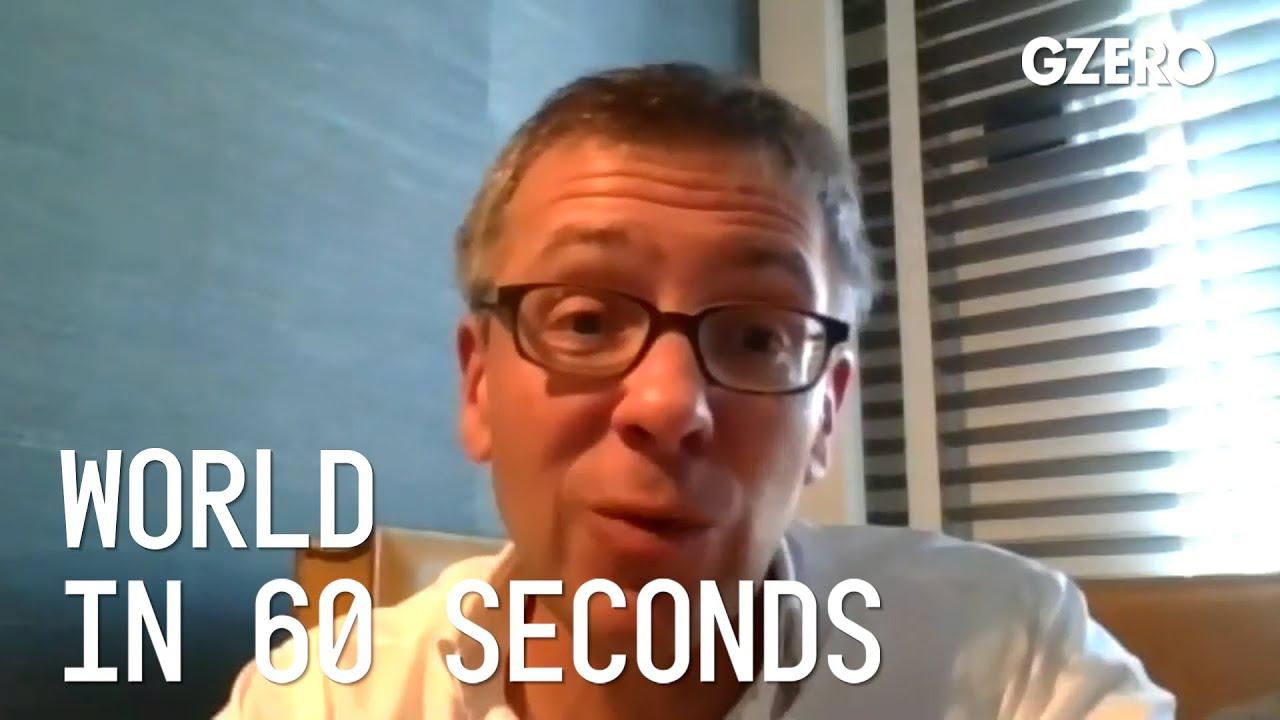
Ian Bremmer shares his insights on global politics this week on Boris Johnson's tenure, COVID-19 fatigue, and China's zero-COVID policy and the Winter Olympics:
Is Boris Johnson's tenure as prime minister of the UK on the ropes?
Well, yeah, it increasingly looks like he's not going to last the year. You'd think it would be because of Brexit, you'd think it would be because the economy is going to hell in the UK. Massive inflation, quality of life is going down. No, it's none of those things. It's actually because the British citizens have a really strong sense of fair play. And Boris Johnson has now been caught in a number of different scandals, the most shambolic of which has been a party for some hundred staffers that he denied he was at. Then he said investigators would have to look into it because he didn't know that he was or wasn't in the party. Then he finally admitted it and apologized, but said, "Well, it was bad judgment, but it was really a work event." And of course this is all BS, and he has lost a lot of the support of his own party. His approval ratings are lower than Biden's. They're in the twenties right now. It increasingly looks like there will be an internal party challenge. And they'll want to get rid of him after the worst news for the economy comes out this year, so they don't have to, whoever's coming after him doesn't have to take responsibility. But it does look like Boris Johnson is near the end of his rather ill-fated tenure.
As COVID fatigue sets in, where is the world in its mission to return to normalcy?
It really depends on what part of the world you're in. In a lot of the poorest countries in the world that haven't gotten significant vaccines yet at all, they don't have the money to lock down. They've been basically living with COVID all the way through. Everyone talks about how Sub-Saharan Africa has virtually no vaccines, and that's true, but they also have an extremely young population, and they also have to deal with so many other types of ailments and epidemics that frankly, most African countries have been living with COVID as if they've been living with just about everything else. And we saw that even in South Africa, which is by far the wealthiest, but the majority of the country wasn't vaccinated. And because omicron wasn't leading to overwhelming their hospitals they didn't worry about it all that much. In China, on the other hand, and we've talked about this quite a bit, they're not moving towards living with the virus at all. They're still trying mightily to have zero-COVID policies, and that's going to prove very, very difficult with very transmissible omicron.
Finally, with China's zero-COVID policy, what's the outlook for the Winter Olympics?
Well, just in the last few days we've seen a number of cases, the largest outbreak of COVID so far since the lockdowns in Tianjin, which is only about an hour outside of Beijing. And that's a real problem, right? I mean, this is now getting really close to where they're hosting the Olympics. They're doing rolling lockdowns in neighborhoods. They're still trying to assure literally that zero COVID cases spread. So whenever they see COVID cases, they're locking down and they're testing, and they're tracking, and they're tracing, and they're surveilling. The Olympics are only a few weeks away right now. I know that everyone's geared up for Beijing Olympics. I still think there's a non-negligible chance they don't happen. And obviously this is going to be the big story. It's not going to be about genocide and the Uyghurs, it's not going to be about diplomatic boycotts, the biggest story is omicron and China, and can zero-COVID policy hold up with a completely bubbled Olympics? And the answer is I think it's going to be really, really challenging. So we'll see where it goes.
- Can Boris Johnson survive? - GZERO Media ›
- What We're Watching: Another bad day for Boris, NATO-Russia talks ... ›
- Top Risks 2022: We're done with the pandemic, but the pandemic ... ›
- Don't jump out the omicron window - GZERO Media ›
- No progress after US/NATO-Russia talks, Boris Johnson in trouble - GZERO Media ›
- No progress after US/NATO-Russia talks, Boris Johnson in trouble - GZERO Media ›
- Boris Johnson is likely to face another no-confidence vote soon - GZERO Media ›